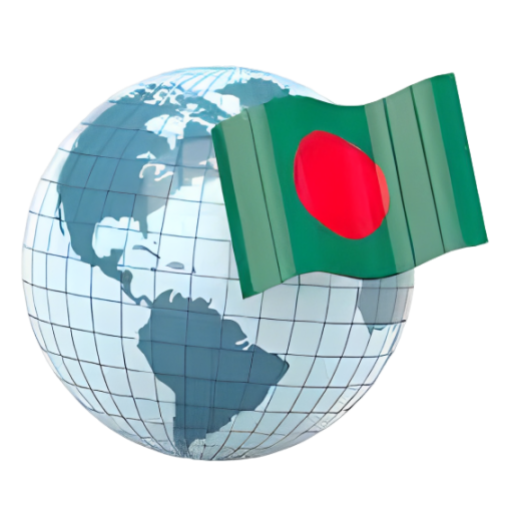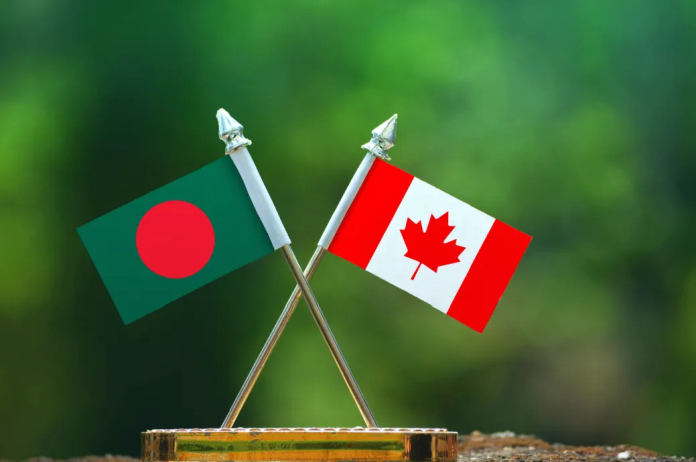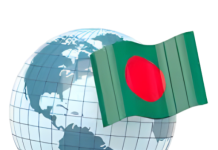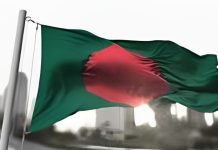This study focuses on the activities of the government of Canada, Canadian NGOs, Canadian media, and the people of Canada during the liberation war of Bangladesh. In particular, the period under study is the crisis period, beginning with the military crackdown of March 25, 1971, and ending with the surrender of the Pakistani army on December 16, 1971. It outlines Canada’s support for providing assistance to the victims of the military crackdown; as well, Canada’s mediatory role. Finally, it shows how Canada, a middle power, was torn between being placed in a dichotomous situation and her foreign policy constraints in dealing with the self-serving interests of the three distinct parties involved in the conflict – the military government of President Aga Muhammed Yahya Khan, the Provisional Government of Bangladesh and the government of India each with one’s own agenda.
Canada was conflicted right from the beginning. Since Canada was inextricably bound up with her own collective historical experiences, her initial reaction is difficult to characterize in any specific terms. Unlike the Nixon administration which was openly in favour of the Pakistani military government of President Yahya, the government headed by Pierre Elliott Trudeau procrastinated due to Canada’s foreign policy constraints – “non-intervention” in the “internal affairs” of another country. Soon the people of Canada began to pressure the government to express its position in clearer terms seeing how the continued military reprisals resulted in the exodus of millions of Bengalis. With assistance from the Canadian High Commissioners to Pakistan and India, the External Affairs Minister Mitchell Sharp and his team members began to focus on the events as they unfolded in the Indian subcontinent. Some Members of Parliament (MP), especially opposition party members, began to challenge the government demanding it to be more transparent in its public position to represent the wishes of Canadians.
In the House of Commons, the government was barraged with a series of questions: was the military take-over and crackdown a violation of the democratic rights of the people of Pakistan? Should the process of democracy be upheld under all circumstances? Should President Yahya continue his military reprisals in East Pakistan since the integrity of Pakistan was at stake? Should power be transferred to the elected leader of East Pakistan regardless of what the military government thought of the leader of the majority party? There were no clear answers to these questions since the declaration of the independence of Bangladesh by the rebel forces and the formation of the Provisional Government of Bangladesh in India by then had already created yet another new twist in the complex issue regarding transfer of power to the leader of East Pakistan. In the midst of the domestic crisis, what was India’s role? Was India dragged into the crisis due to the influx of refugees? What role should Canada play as a senior member of the Commonwealth for the two Commonwealth sisters who had been at war since the 1947 partition of India?
While the conflict was taking various shapes and forms in the subcontinent, the Trudeau government, all through the crisis period, was trying to cope with one of its crucial problems in its own backyard, le crise d’octobre de 1970. The government was still assessing the impact of the proclamation of the War Measures Act following the FLQ (Front de liberation du Québec) crisis of 1970. As a result, Canada needed to be circumspect, doubly careful, in condemning the military repression in East Pakistan which she considered to be an “internal affair” of Pakistan. At times, Canada was convinced that the expanding dimension of the human tragedy was much deeper than it had appeared. At another time, the Trudeau administration believed that when one would look at the issue from a humanitarian aspect, any intervention under the circumstances would perhaps have been regarded as a legitimate intervention. Canada was placed between the devil and the deep blue sea, especially when she saw how debates around the world were continuing immediately following the exodus of the millions of Bengalis to India within a span of a few months.
Officials at external were faced with many behind-the-scene questions that had no apparent answers for the Ottawa mandarins: How long could the government maintain its notion of “neutrality?” At what point does a “domestic affair” become an “international affair?” How many millions of Bengalis have to flee their homeland to take refuge in India so that the international community may get their act together? These were difficult questions for the Trudeau administration throughout the liberation war.
Ottawa watched how in Canada the people of East Pakistani origin took to the streets across the country as soon as they heard about the sudden and surreptitious military crackdown. There were reports of clashes between the groups condemning the atrocities perpetrated by the West Pakistani army and the groups interpreting the military crackdown as a necessary evil to establish law and order. As the gory details of the news of the massacre and wanton destruction began to filter in, the Canadian media began to play a greater role both in raising awareness and molding opinion in favor of an independent Bangladesh.
Throughout the nine long months of the struggle for the independence of Bangladesh, Canada maintained her position of “neutrality” although clearly there had been occasions when she became involved both actively as well as passively. Again, there were occasions when Canada’s actions, or lack thereof, cannot be explained in a linear manner as one needs to find answers to a host of related questions in order to understand the Canadian perspective vis-à-vis the Pakistan-Bangladesh conflict.
This book advances the view that Canada, having no strong ties of strategic interests in Pakistan or India, had a sympathetic understanding of the two main parties involved – the military government of President Yahya and the democratic right of the people of Pakistan represented by Sheikh Mujibur Rahman, prime minister-designate. Relying on both pro-Pakistani and pro-Bangladeshi sources of information, the cumulative effect of the factual information gathered from overseas allowed Canada to appreciate the psychological and emotional dimension of the conflict stemming from economic disparity and political discrimination in Pakistan. Canada saw how two key concepts, “freedom” and “future” remained in the minds of both military administrators and politicians in Pakistan. With quite a bit of discomfort, Ottawa opted to follow the drama ever since it started to play with the destiny of the Bengalis. In the final analysis, seeing the situation of the Bengalis as a gripping story of human suffering and a story of denial of the democratic rights of the people of Pakistan, Canada chose not to be a spectator but a player to do her best while still adhering to her foreign policy of “non-intervention.”
In summary, the book documents Canada’s role in the war of liberation through an examination of government and non-government records available in Canadian depositories. If any of you have any idea to share with me in this regard, I would be delighted to connect with you. Please contact me. My coordinates are below.
The book is slated for publication in December 2023 by the Indiana-based Xlibris.
 Mustafa Chowdhury has authored the following books: ’71-er Judhoshishu: Obidito Itihash; UNCONDITIONAL LOVE: Story of 1971 War Babies; Picking Up the Pieces: 1971 War Babies’ Odyssey from Bangladesh to Canada.
Mustafa Chowdhury has authored the following books: ’71-er Judhoshishu: Obidito Itihash; UNCONDITIONAL LOVE: Story of 1971 War Babies; Picking Up the Pieces: 1971 War Babies’ Odyssey from Bangladesh to Canada.
A Canadian of Bangladeshi origin, Mustafa Chowdhury has graduate degrees in English Literature, Library & Information Science, and Canadian History. During his lengthy career of 34 years in Canada’s federal public service, he worked for a number of key federal departments.
Chowdhury is the recipient of several awards for his contributions to the public service and to his profession. Some of them are: Orlean’s Queen’s Platinum Jubilee Award and a pin by Marie-France Lalonde, Member of Parliament for Orleans. A crest from Chandra Arya, Member of Parliament for Nepean, recognizing Mustafa Chowdhury’s “Service to the Bangla community and beyond.” Certificate of Appreciation for dedicated service and advice provided to the Commissioner’s Advisory Committee on Visible Minorities (RCMP). The Vision Award in Recognition of Contributions to Employment Equity (Human Resources Development Canada). Outstanding Team Award (Treasury Board Secretariat); Certificate of Volunteer Appreciation (City of Ottawa); Volunteer Appreciation Certificate, Government of Canada Workplace Charitable Campaign; Award of Merit for Volunteer Services, Cumberland Township Community Resource Centre; Award of Merit for Volunteer Services, Ottawa-Carleton Immigrant Services Organization.
Over the years Chowdhury has written many articles on Equity, Diversity and Multiculturalism that were published in local newspapers. His first book titled ’71-er Judhoshishu: Obidito Itihash was first published by Academic Press and Publishers Library, Bangladesh, in 2015. His second book on the same subject titled Picking Up the Pieces: 1971 War Babies’ Odyssey from Bangladesh to Canada was published by Xlibris, Bloomington, Indiana, USA in 2015.

Mustafa Chowdhury
Mustafa Chowdhury has authored the following books: ’71-er Judhoshishu: Obidito Itihash; UNCONDITIONAL LOVE: Story of 1971 War Babies; Picking Up the Pieces: 1971 War Babies’ Odyssey from Bangladesh to Canada.
A Canadian of Bangladeshi origin, Mustafa Chowdhury has graduate degrees in English Literature, Library & Information Science, and Canadian History. During his lengthy career of 34 years in Canada’s federal public service, he worked for a number of key federal departments.




